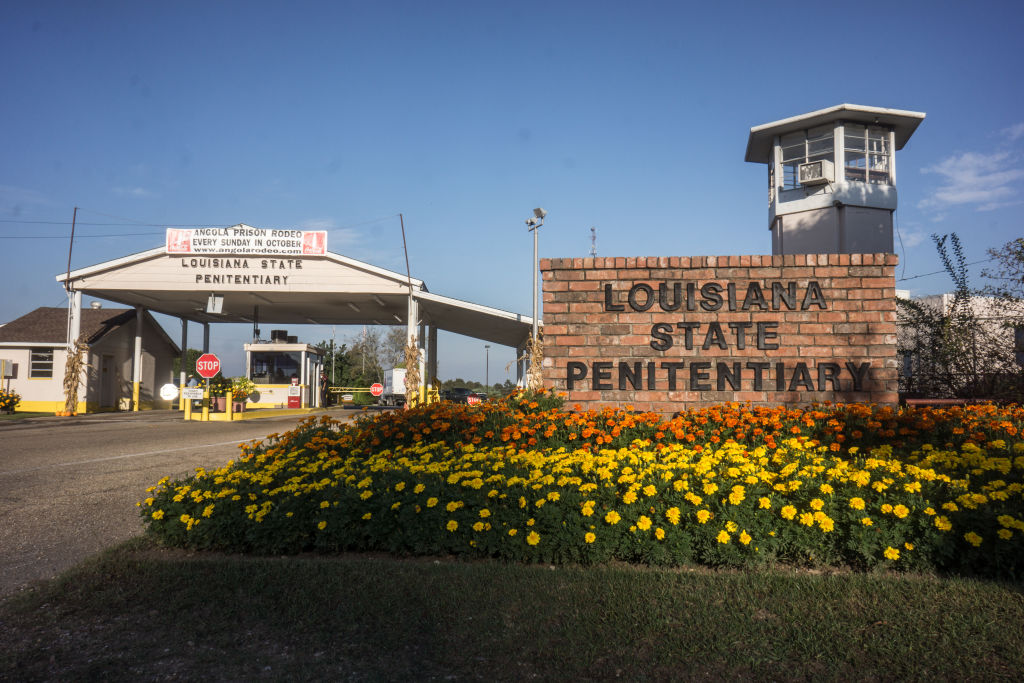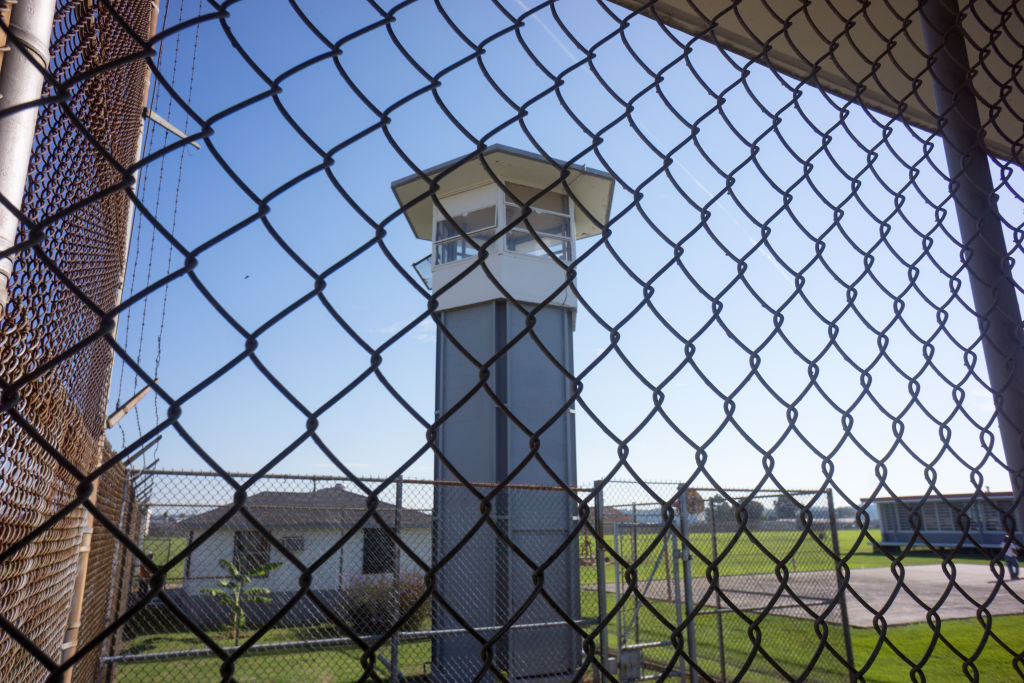Jailed Louisiana Children Moved To 'Angola' Prison For Adults
Louisiana Moves Jailed Children To ‘Worst Of The Worst’ Prison For Adults

The entrance of Angola Prison in Louisiana in 2013. | Source: Giles Clarke / Getty
UPDATED: 3:45 p.m. ET, Oct. 20, 2022
Originally published on July 21
The plan to relocate a portion of jailed children in Louisiana to a notorious state prison that’s been described as “the worth of the worst” has begun despite vehement opposition from child welfare advocates.
In addition to possibly having adverse effects on an effort to reform the minors behind bars, attorneys for children in the state’s criminal juvenile justice system have said that placing youth in a detention center with adults — in a facility originally intended for death row inmates — will violate the law.
One of the state’s leading child welfare advocacy groups blasted the decision after receiving confirmation that the first group of jailed children had arrived at the infamous Louisiana State Penitentiary nicknamed the “Alcatraz of the South” but more commonly known as Angola.
“We are heartbroken for the kids and families who are being forced to endure this state-sanctioned violence. For days, parents have been left in the dark, only to find out after the fact that their children have been moved to a former death row building at Angola. Louisiana, under the leadership of the governor, is taking a step backward in the fight for racial justice,” Gina Womack, Co-Founder and Executive Director of Families and Friends of Louisiana’s Incarcerated Children, said in a statement emailed to NewsOne on Thursday. “To be clear, this is a choice to continue to perpetuate a legacy of slavery and institutional violence. Our state leaders and systems have failed these youth. Instead of giving them the care and support they need to grow into contributing members of society, the state is causing them further trauma and harm.”
Nevertheless, Louisiana Gov. John Bel Edwards said in July he was committed to moving some — not all — of the inmates at a troubled juvenile jail to Angola, the country that was the origin of many enslaved Africans brought to Louisiana. Angola is also the largest maximum-security prison in the U.S.
At the time, Edwards said his decision was based on the more than two dozen escapes from the Bridge City Center for Youth jail this year, including six inmates from days earlier, according to NOLA.com. One of the escapees, a 17-year-old, allegedly carjacked and shot someone while on the lam.
While all of the escapees have since been apprehended and rejailed, Edwards said they won’t be returning to and staying at the Bridge City facility for long and would instead be transferred to Angola.
Edwards said there is evidence that Bridge City has displayed “numerous deficiencies and failures” and violated “the approved plan of action for the additional security.” He insisted that the children inmates would be moved from Bridge City to a “secure, independent housing unit” at Angola that used to operate as a reception center.
“I understand that this is not the perfect or ideal plan and that some will have questions,” Edwards said during a press conference on Tuesday. “I do believe the situation demands an immediate response, and these are the best options that we currently have.”
But that’s no solace for child prisoner advocates, who take exception to Edwards’ decision.
“Angola is supposed to be for the worst of the worst,” Shon Williams, the outreach coordinator and project assistant for the nonprofit Louisiana Center for Children’s Rights, told the Louisiana Illuminator. “Sending those kids there will ensure that’s what they become.
Williams said he had been jailed at Angola when he was a minor.
“I know from experience that kids are not safe in adult prisons,” he added.

Angola prison. | Source: Giles Clarke / Getty
Beyond that, lawsuits against the state may be on the horizon because moving juvenile prisoners to Angola is just plain illegal.
“Louisiana law explicitly prohibits overlap between incarcerated youth in the juvenile justice system and adult prisoners,” the Louisiana Illuminator reported. “By statute, they must be housed in separate facilities and are not allowed to see or hear each other while locked up.”
Advocates not only argued that housing children at Angola won’t truly solve the larger issues plaguing Louisiana’s Office Of Juvenile Justice (OJJ) but they also suggest it would be nearly impossible to keep the children and adult prisoners segregated at a farm-based prison where all of the inmates have jobs — including keeping the maintenance of buildings like the one the children from Bridge City will live in at Angola.
“I would think you would need to do major infrastructure changes to truly guarantee sight and sound separation [between incarcerated adults and youth],” said Hector Linares, a law professor at Loyola University-New Orleans whose focus is juvenile justice. He said just because Angola has many buildings on prison grounds “doesn’t mean sight and sound separation is possible.”
Logistical issues could also affect the education services the children inmates are receiving at Bridge City, as OJJ would need to hire new staff members to fill that void at Angola.
“The Office of Juvenile Justice has also previously run into problems with providing school and educational services to incarcerated youth at another facility,” the Louisiana Illuminator reported.
“Incarcerating youth in adult facilities is even more harmful than incarcerating them with people their own age,” according to the Prison Policy Initiative. “Of all incarcerated people, youth held with adults are at the highest risk of sexual abuse; they are also 36 times more likely to commit suicide than youth in juvenile facilities, and are at a greater risk of being held in solitary confinement than they would be in juvenile facilities.”
While the future Angola inmates are expected to only stay there for an undetermined amount of time, their subsequent incarceration at the Jetson Center for Youth is similarly questionable since that facility was closed down in 2014 “in large part because it wasn’t considered appropriate for implementing a therapeutic approach to juvenile justice,” according to the Louisiana Illuminator.
SEE ALSO:
Everything To Know About 15-Year-Old Black Girl Locked Up After Not Finishing Online Homework
Kalief Browder, Teen Jailed For 3 Years Without Conviction, Dies Of Suicide
















